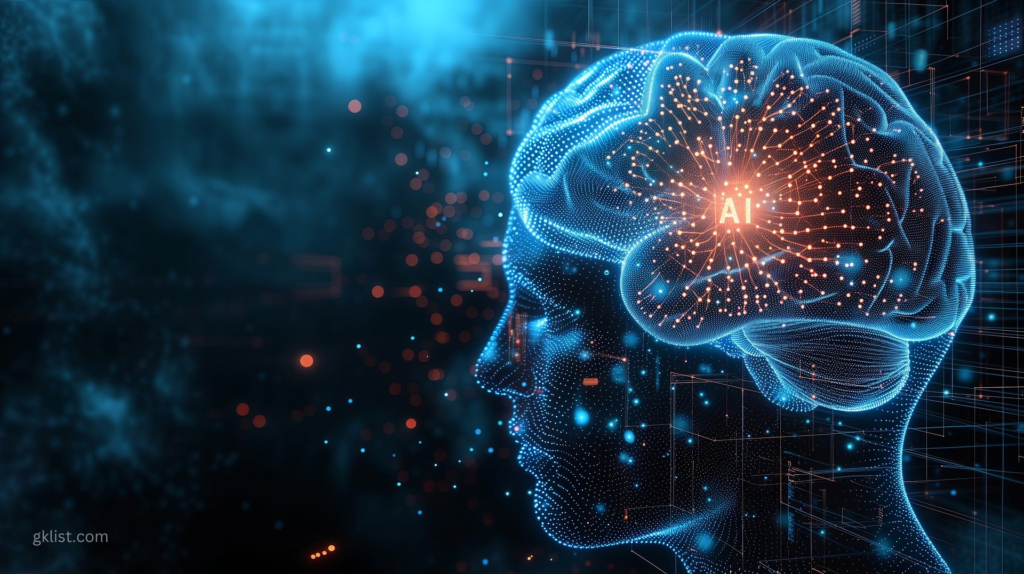
Discover 20 mind-blowing general knowledge facts about AI. Learn how artificial intelligence is transforming industries, daily life, and the future of technology.
Introduction
Artificial Intelligence (AI) is revolutionizing the world faster than ever before. From self-driving cars to smart assistants, AI is shaping the way we live, work, and interact. Here are 20 fascinating general knowledge facts about AI that will leave you amazed.
General Knowledge Facts About AI

1. AI Can Mimic Human Emotions
AI is now being developed to recognize, understand, and even mimic human emotions. Emotion AI, also known as Affective Computing, helps machines interpret human expressions, tone, and body language.
2. AI Powers Virtual Assistants Like Siri and Alexa
AI-based voice assistants like Siri, Alexa, and Google Assistant use natural language processing (NLP) to understand and respond to human commands.
3. AI Defeated Humans in Chess and Go
Google’s AlphaGo AI beat the world champion in the complex game of Go, and IBM’s Deep Blue defeated chess grandmaster Garry Kasparov in 1997.
4. AI Can Create Art and Music
AI tools like DALL-E and AIVA generate stunning artwork and compose music that sounds human-made, proving AI’s creative capabilities.
5. AI is Used in Space Exploration
NASA uses AI-powered robots like the Perseverance Rover on Mars to analyze terrain, collect data, and make autonomous decisions.
6. AI Helps Detect Diseases
AI is used in healthcare to detect diseases like cancer and Alzheimer’s early through advanced imaging and data analysis.
7. AI Can Write Like Humans
AI models like ChatGPT and GPT-4 can generate human-like text, write articles, and even create stories with minimal human input.
8. AI is Replacing Traditional Jobs
Automation powered by AI is replacing jobs in industries like manufacturing, customer service, and data entry, leading to new discussions about the future of work.
9. AI is Learning to Drive Cars
Self-driving cars from companies like Tesla and Waymo use AI to navigate roads, recognize traffic signs, and avoid accidents.
10. AI Can Predict Weather with High Accuracy
AI models analyze vast amounts of meteorological data to make highly accurate weather predictions, improving disaster preparedness.
11. AI Can Generate Deepfake Videos
Deepfake AI can manipulate images and videos to create realistic but entirely fake content, raising ethical concerns about misinformation.
12. AI is Used in Cybersecurity
AI algorithms detect cyber threats and prevent hacking attempts, making online data more secure.
13. AI Helps Personalize Your Social Media Feed
Platforms like Instagram, Facebook, and TikTok use AI to analyze user preferences and show personalized content to keep you engaged.
14. AI is Revolutionizing Online Shopping
E-commerce giants like Amazon and Alibaba use AI to recommend products based on browsing history and past purchases.
15. AI Translates Languages Instantly
AI-powered translators like Google Translate and DeepL can translate languages instantly, bridging communication gaps worldwide.
16. AI is Used in Military and Defense
AI-powered drones and surveillance systems help military forces in strategic planning and security operations.
17. AI Can Predict Customer Behavior
Marketing teams use AI to analyze customer data and predict buying behaviors, helping businesses tailor their advertisements.
18. AI is Used in Smart Homes
Smart home devices like Google Nest and Amazon Echo use AI to control lighting, temperature, and security systems.
19. AI is Fighting Climate Change
AI analyzes environmental data to track deforestation, predict natural disasters, and suggest solutions for reducing carbon footprints.
20. AI is Becoming More Human-Like
With advancements in deep learning and neural networks, AI is improving its ability to think, learn, and interact just like humans.
Conclusion
AI is rapidly transforming our world in ways we never imagined. From assisting in daily tasks to revolutionizing industries, its impact is undeniable. As AI technology advances, it’s essential to understand its capabilities, ethical concerns, and future potential.